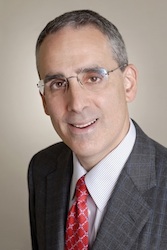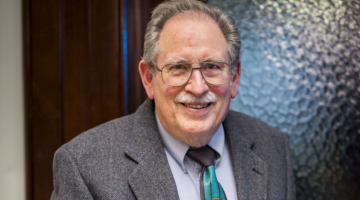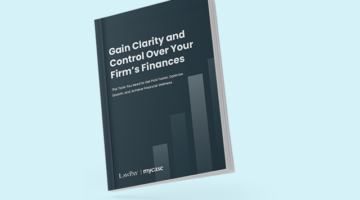
Bruce Stachenfeld
I keep hearing people in the media or related disciplines dumping on us lawyers, especially the evil Biglaw, and I think it is time for a counterview. I respect that it is necessary to have a “story” in order for people to want to read articles, which of course drives the media to some degree – and I also respect that there is no story in the statement that “things are going pretty good in the legal profession on an overall basis”; however, I think that that non-story is a pretty accurate description of what is going on in the law business right now.
I thank Vivia Chen for conveniently collecting all the negative energy against our profession in a single piece she wrote for the American Lawyer, Top 10 Predictions for Big Law in 2016. I think she was trying to be tongue in cheek (although I am not sure). I tried to laugh; however, instead of evaluating Chen’s sense of humor, I thought this would be a chance to go the other way and point out the positives.

A Career In Legal Services: Practising Law Institute Honors Toby J. Rothschild
PLI honors Toby J. Rothschild with its inaugural Victor J. Rubino Award for Excellence in Pro Bono Training, recognizing his dedication and impact.
Irrespective of Chen’s article, my theme here is that I am tired of all the misplaced negativity towards our profession, mostly directed at major law firms. It all seems designed to convince us lawyers we are in a depressing dead-end miserable existence, when I think, to the contrary, we have the best jobs imaginable – for most of us a job that combines hard work, intellectual challenge, good financial rewards, often stability, and personal rewards in our work. I acknowledge this isn’t true for all lawyers; however, there is no profession or industry that is perfect for everyone. I think ours is pretty good and even great.
The constant attacks on (and the rare defenses of) our profession continue this (myth of) negativity. Books that I think overall play with statistics and are written by professors or those who I suspect have an axe to grind now spread more negative sentiments, which doesn’t help either. (As an example of this kind of writing, I refer to Steven J. Harper’s The Lawyer Bubble (affiliate link).)
In any event, I am taking Chen’s predictions one by one and giving my own predictions for the year 2016. By the way, I read Chen’s pieces every month and often am very impressed and have high regard for her writing. She is provocative and interesting; however, provocation often draws a response, and here is mine:
- Chen says that “Only low-ranking law schools will teach practical skills so Biglaw will continue to hire “clueless grads with magnificent résumés.” I have two responses here: First, this is just not true. According to partners and associates at my firm, major law schools absolutely do teach practical skills. Here is a (completely unsolicited) quote from one of my associates:

Take Control Of Your Firm’s Finances With Tools Built For Success
Position your firm for long-term growth with better financial visibility and control. Learn how to track performance, manage spending, and plan strategically—download the full e-book now.
[H]er prediction is simply not true. Schools across the board already offer skills courses, and continue to increase their focus on developing practical skills. She uses depositions as an example – Cornell did offer a depositions course, which I took. They also had a seminar on real estate transactions led by two Paul Hastings attorneys (which I also took!), a class on M&A issues, and countless other courses/clinics/externships. Whether these are effective is a separate question, but it’s inaccurate to say that top law schools don’t offer skills training.
Second, it is incredibly hard to get into a top law school today. Great lawyers can be found at lower-ranking law schools for sure, but I don’t think it reasonable to call those kids whose crime was working intensely hard to get into a top law school now “clueless grads.” Bruce prediction: kids will work super hard to get into top law schools, the law schools (at all levels) will augment their practical training (as there is a ton of demand for it), and major law firms will work hard to attract the best and the brightest to their firms.
- Chen says that “Firms will hold visiting days for ‘helicoptering parents’ to convince them they’re ‘worthy of their precious darlings.’ This is a nice demeaning statement to the millennials, I guess. Stereotypes are nasty things, as everyone in the U.S. by now knows, and insinuating negative behavior and motivations to junior lawyers is in no one’s interest. My firm hires lots of millennials. Some are hardworking, and incredibly driven, and some are less so, just like every other group of people. Bruce prediction: talented and hardworking millennials will succeed in the law world, which is largely a meritocracy; millennials without talent and hard work will not.
- Chen says that “Firms will make ‘a big show about work/life balance’ and will hire nutritionists, massage therapists, gurus and healers. Enjoy the treatments,” she says “as long as you don’t expect any fundamental changes….” In this regard, I note that seven of the top places to work in New York City in 2015 were Biglaw firms! I don’t know what Chen is looking at, but I see constant evidence of major law firms doing what every other major organization is doing, which is trying desperately hard to make their organization a great place to work so they don’t lose their talent. And is it wrong for a law firm to make clear that in return for the big salary and the perks, they expect 2000 hours plus? Doesn’t seem so awful to me. I worked long hours for many years myself and never blamed the firm for giving me a job on the terms promulgated. Bruce prediction: these programs will continue and make more and more law firms contenders for the best places to work in NYC and the U.S.
- Chen predicts that “associates will bill 2500 hours a year,” adding that “Once upon a time 1600 hours were considered respectable, then it became 1800 hours, then 2000. So what’s another few hundred hours?” On this point, first, I don’t know if 2500 is the number – I have never heard that – and a recent Citigroup survey I read seems to say more like 1750 hours is average for major law firms. Second – this is not indentured servitude – associates are free to stay or go as they see fit. Salaries have risen dramatically in the past ten years, and it is not unreasonable to think hours have risen as well. Also, many associates “use” Biglaw for training and those hours provide an awful lot of training as well. I still don’t see where Chen’s statements come from. Bruce prediction: newly minted lawyers trying to make their mark on the legal world will work very hard to achieve success; law firms will ask these newly minted lawyers to work hard for the high salaries. Some newly minted lawyers will thrive in the Biglaw environment; some will not. I am hopeful (but admit that this is not a prediction) that newly minted lawyers who do not thrive will not deem themselves “victims” (which is an easy path to take if they fall into the traps set by the books and writings mentioned above), but instead will take charge of their careers and move in a different direction if that is what they want.
- Chen predicts that “Law firms will institute sales quotas. Like used car dealerships or large appliance stores, law firms will set sales targets for senior associates gunning for partnership and partners trying to hold their place.” I haven’t heard this one before, except that I think that it is clearly part and parcel of a lawyer’s job to market successfully and bring in business, and for many this can become one of the most interesting, exciting and fulfilling parts of a lawyer’s job. Is that now being denigrated somehow as bad? Bruce prediction: selling and marketing will become more and more important. There will not be negative-sounding sales quotas per se, but there will be expectations and accountability that lawyers expecting large paychecks will be successful in the sales and marketing components of their jobs.
- Chen predicts that “The ranks of equity partners will shrink. Your odds of making partner will approach the odds of winning at Powerball….This will ensure that equity be reserved strictly for the top drawer – the best, the brightest and the most greedy.” Yowza. Now all partners in Biglaw are “greedy” and there is an “obligation” of law firms to make partners? This is, in my humble view a ridiculous prediction. I thought that in the U.S. it was okay to try to make a profit, even for a law firm? Plus if you really get down to it, a Biglaw firm that is not highly profitable becomes susceptible to having other law firms poach its talent and go out of business. So it is easy to stand on the sidelines and take potshots at the Biglaw profit motive, but there is no real logic to doing anything different. Bruce prediction: some law firms will run themselves better, which means making their environments as close to a meritocracy for attracting and retaining talent as possible – and some will do the converse. The latter will survive as long as times are good but as soon as work constricts these firms will have serious troubles and some will not survive. At this point I think just about every major law firm knows these lessons and now it is a question of execution.
- Here is an interesting prediction from Chen: “Non-partner tracks will explode. Lawyers will choose from a smorgasbord of alternative routes. Tracks for part-timers, flex-timers, off-rampers, on-rampers, aspiring parent (the IVF club), new parents, tired parents. None will lead to equity partnership, and women will dominate all these positions.” The implication of what Chen is saying here seems to be that law firms that pull out all the stops to try to keep those seeking work/life balance on the team are now “bad” for setting up these programs to entice them to stay? I always thought that law firms were thought to be “bad” in not having these programs for men AND women who seek alternative time commitments for personal reasons. Now law firms do have these programs and they are being criticized as being “bad” for doing so? Bruce prediction: these programs will continue and hopefully create win/win solutions for women and men and law firms seeking to create that magic mixture of work/life balance (targeted to each individual’s preferences), a work meritocracy, high client service, and some fun along the way.
- Chen predicts that “Freelancers will squeeze out associates. Firms will get hip about the freelance economy. Why shell out all that money for benefits and office space then they can hire experienced, burnt-out alums of top firms on an hourly or per assignment basis?” I don’t know where Chen is coming from here. These freelancers are either people who are unfortunate in not achieving their career goals and are trying every which way and angle to pull out a career somehow, or people who just don’t want to be tied down to a full time job and like the freelance idea. Why is this wrong or bad? Bruce prediction: this will continue but it will not have any noticeable effect on the demand for associates.
- Chen says that “Baby boomers will still run the show. Sorry, young ‘uns, but partners in the fifties and sixties aren’t going anywhere soon, unless they’re carried out (feet first). They’re controlling firm management and clients and hogging clients, billings and the best offices in town.” I guess the plan is that baby boomers, who worked for years, and put in enormous efforts to develop clients and relationships, should…hmmm….die or quit so that they can give away what they earned to others? I am not sure of the point being made here? I will say this, I spend a ton of my time marketing and teaching marketing, to people at all stages in their careers, and I am 100% comfortable in saying there are enormous opportunities for lawyers – at all stages of their careers—to develop books of business if they work hard to do it. And waiting for baby boomers to die is not the recipe for success that I would advocate. Bruce prediction: Baby boomers will not discorporate (what book is that from?) and will continue in their positions as long as they are productive for the firms they work for. Some will hang on too long and some will not. I don’t see a major trend here.
- And the final prediction of Chen is tongue in cheek about Alan Dershowitz and Donald Trump. On this one maybe she is right. I don’t have a view here. Bruce prediction: the law business (as a general whole in the U.S.) will have a strong year in 2016.
Top 10 Predictions for Big Law in 2016 [The Careerist / American Lawyer]
Bruce Stachenfeld is the managing partner of Duval & Stachenfeld LLP, which is an approximately 70-lawyer law firm based in midtown Manhattan. The firm is known as “The Pure Play in Real Estate Law” because all of its practice areas are focused around real estate. With 50 full-time real estate lawyers, the firm is one of the largest real estate law practices in New York City. You can contact Bruce by email at [email protected].